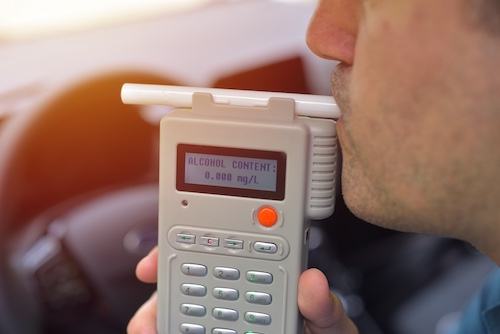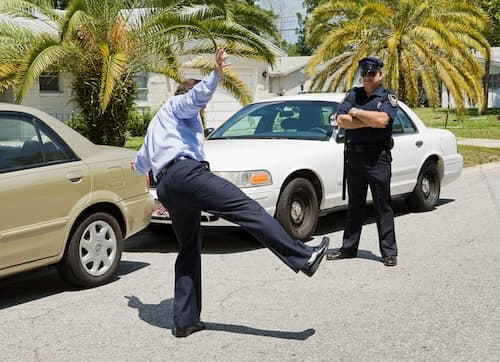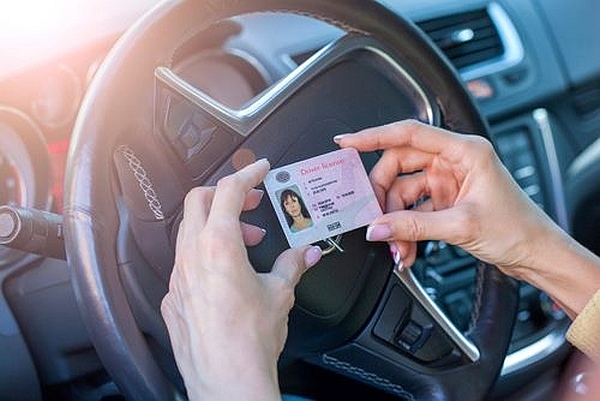Why Challenging BAC Test Results Matters in Asheville DUI Cases
If you’ve been arrested for driving under the influence in Asheville, you may feel overwhelmed by the evidence stacked against you. One of the most intimidating pieces of that evidence is often a blood alcohol content test. Many people don’t realize that these tests are not infallible. In fact, there are numerous legal and scientific ways to challenge BAC test in Asheville DUI cases. At Asheville DUI Guy, we focus on identifying weaknesses in the state’s case and ensuring your rights are protected.
Understanding BAC Tests and DUI Law in Asheville
A blood alcohol content BAC test is designed to measure the concentration of ethyl alcohol in a person’s blood or breath. In North Carolina, the legal BAC limit is 0.08% for most drivers. For commercial drivers, the threshold is lower, and for underage drivers, the state enforces a zero-tolerance policy.
Law enforcement officers and law enforcement agencies in Asheville rely heavily on these numbers. If your BAC reading is above the legal limit, prosecutors may assume guilt. But the science behind a blood alcohol concentration test is far from perfect.
Types of BAC Tests Used in Asheville DUI Cases
When a person is stopped during a traffic stop and suspected of drunk driving, officers may administer one of several types of BAC tests:
- Breathalyzer Test / Breath Test – Measures blood alcohol levels indirectly through a person’s breath. Devices are prone to false positives from residual mouth alcohol, breath sprays, or certain medical conditions.
- Blood Test – Requires a blood draw, placing a blood sample in a test tube for laboratory analysis. While often seen as more accurate, improper handling or contamination can taint results.
- Urine Test – Less common and less reliable, as it doesn’t measure current impairment well.
Each type of test has limitations. Breathalyzer devices must be regularly calibrated and documented in maintenance logs. A small mistake in collecting or analyzing a blood sample can create a significant difference in results.
Common Issues That Cast Doubt on BAC Test Results
There are several factors that can produce false readings or inflated BAC readings, undermining the prosecution’s evidence:
Residual Alcohol & Environmental Factors
- Residual mouth alcohol from breath sprays, recent drinking alcohol, or even dental work can skew breathalyzer test results.
- Environmental factors such as temperature changes and radio frequency interference can affect a breathalyzer device.
Medical Conditions & Human Factors
- Acid reflux, gastroesophageal reflux disease (GERD), or even alcohol use disorder may cause alcohol to reappear in a person’s breath, leading to inaccurate readings.
- The Cleveland Clinic documents cases where conditions can mimic alcohol in the body.
- Human error by a police officer during collection, storage, or handling of samples can undermine test results.
Lifestyle & Food Intake
- How much food you ate, the timing of alcohol consumption, or your body’s metabolism may create misleading BAC levels.
These problems can cast doubt on the reliability of blood alcohol content BAC test results, weakening the prosecution’s case.
Procedural and Technical Errors in BAC Testing
Even if the science seems sound, mistakes in procedure can render test results invalid. Defense attorneys at Asheville DUI Guy routinely investigate whether proper procedures were followed.
- Blood Draw Errors – Improper cleaning of the injection site, contaminated test tubes, or expired preservatives can corrupt a blood sample.
- Breathalyzer Calibration – Devices must be properly calibrated and checked against maintenance records and calibration records. If not regularly calibrated, they may generate false positives.
- Chain of Custody Issues – If the prosecution cannot prove that your blood sample remained intact, the results may be inadmissible.
- Police Officer Training – A poorly trained officer or failure to follow required steps can make the prosecution’s evidence unreliable.
How BAC Readings Affect DUI Charges
A high BAC reading often forms the backbone of the prosecution’s case. However, it’s important to remember:
- Inflated BAC readings may not reflect your true alcohol level at the time of driving.
- A significant difference between actual impairment and test results is common.
- Many defendants face DUI charges based on false readings, despite being below the legal BAC limit.
By highlighting flaws in BAC tests, your attorney can challenge the strength of the prosecution’s evidence and create reasonable doubt.
Alternative Explanations for DUI Symptoms
Prosecutors often point to physical signs of impairment—such as slurred speech, reduced muscle coordination, reaction time delays, impaired judgment, or altered mood. But these do not always indicate alcohol use.
- Medical conditions like acid reflux, GERD, or neurological disorders may produce similar symptoms.
- Fatigue, anxiety, and certain prescription medications can also mimic alcohol impairment.
- In severe cases, unrelated health crises may resemble alcohol poisoning or even trigger respiratory arrest.
By presenting alternative explanations, a defense lawyer can show that observed symptoms don’t necessarily prove alcohol consumption or violation of the BAC limit.
Defense Strategies for Challenging BAC Test Results
At Asheville DUI Guy, we employ multiple strategies to defend against flawed blood alcohol content BAC evidence:
- Examine Maintenance Records – Reviewing maintenance logs and calibration records to identify errors in breathalyzer device upkeep.
- Highlight Human Error – Questioning the actions of the police officer and whether proper procedures were followed.
- Discredit Laboratory Handling – Investigating whether a blood draw or blood test was mishandled, whether test tubes were properly sealed, and whether samples were stored correctly.
- Challenge False Positives – Demonstrating how medical factors like GERD, medications, or diet could create false readings.
- Show External Influences – Arguing how environmental factors or residual alcohol may have skewed breathalyzer test results.
- Expert Testimony – Using toxicologists and medical professionals to explain alternative explanations for BAC levels.
- Undermine Prosecution’s Case – Demonstrating that the prosecution’s evidence is unreliable and fails to prove guilt beyond a reasonable doubt.
Why It’s Critical to Fight Inaccurate BAC Results
Failing to challenge faulty BAC tests can mean the difference between acquittal and conviction. A DUI conviction carries severe consequences, including:
- Fines and court costs.
- License suspension.
- Possible jail time.
- A permanent criminal record.
By challenging BAC test results, you protect not only your freedom but also your reputation and future.
Frequently Asked Questions About Challenging Blood Alcohol Content Test Results in Asheville DUI Cases
Can I really challenge a blood alcohol content test result in an Asheville DUI case?
Yes. Many drivers assume that a blood alcohol content BAC test result is ironclad evidence, but that’s not true. Courts in Asheville recognize that BAC tests can be compromised by false positives, human error, and external factors such as residual mouth alcohol, improper blood draw, or even faulty breathalyzer device calibration. A skilled defense attorney can cast doubt on the prosecution’s evidence by investigating calibration records, reviewing maintenance logs, and questioning whether proper procedures were followed by the police officer and law enforcement agencies.
What are the most common reasons for inaccurate BAC readings in Asheville DUI cases?
Inaccurate BAC readings often occur due to medical conditions such as acid reflux, gastroesophageal reflux disease (GERD), or alcohol use disorder. These conditions can cause residual alcohol in a person’s breath, leading to false readings during a breath test. Other factors include whether the breathalyzer device was regularly calibrated, if the blood sample in a test tube was mishandled, or if human error occurred during a traffic stop. Even environmental factors, like temperature changes or chemical exposure, may produce inflated BAC readings.
How can a lawyer challenge a breathalyzer test result in Asheville?
An attorney can challenge a breathalyzer test result by demanding access to the machine’s maintenance records and calibration records. If the breathalyzer device was not properly calibrated or if the maintenance logs reveal gaps, the accuracy of the test results can be questioned. Lawyers can also highlight the presence of residual mouth alcohol, the effect of breath sprays, or external factors like environmental interference. By raising these issues, your defense can show that the breathalyzer test failed to provide accurate results.
What if my blood alcohol test was conducted through a blood draw?
A blood test is often considered more accurate than a breath test, but it is still vulnerable to challenges. Problems can occur if the blood sample was not stored properly, if the test tube was contaminated, or if preservatives were expired. Defense attorneys frequently review the chain of custody and ensure that the blood draw was conducted according to proper procedures. If errors are found, the court may rule that the blood alcohol test is unreliable.
Can medical factors mimic alcohol impairment in DUI cases?
Yes. Medical conditions and medical factors can often mimic alcohol impairment, which can confuse both law enforcement officers and BAC testing equipment. Issues like acid reflux, gastroesophageal reflux disease, diabetes, and neurological disorders can create symptoms such as slurred speech, reduced muscle coordination, altered mood, and delayed reaction time—all of which can look like drunk driving. In addition, the Cleveland Clinic has documented conditions where natural body chemistry may mimic alcohol consumption, leading to false positives and inaccurate readings.
What role does food and alcohol consumption timing play in BAC test results?
The timing of alcohol consumption and how much food you ate beforehand can drastically alter BAC levels. For example, drinking alcohol on an empty stomach causes alcohol to absorb more quickly, while eating a meal may slow absorption. These metabolic differences often mean that a BAC reading taken during a traffic stop does not reflect your true blood alcohol concentration at the time you were actually driving. This discrepancy can create a significant difference in the test results and open the door for a strong legal defense.
How can Asheville DUI Guy help me fight BAC test results?
At Asheville DUI Guy, we focus on challenging every aspect of the state’s case against you. We examine whether the breathalyzer device was properly calibrated, whether maintenance records reveal flaws, whether blood tests were mishandled, and whether law enforcement officers followed proper procedures. We also present alternative explanations for symptoms the prosecution may point to, such as fatigue, medical conditions, or external factors that can lead to false readings. By exposing weaknesses in the prosecution’s evidence, we can cast doubt and protect you from unjust DUI charges.
Don’t Let a BAC Test Define Your Future
Even if your blood alcohol content (BAC) test seems damaging, the results may not tell the full story. At Asheville DUI Guy, we know how to uncover flaws in testing and fight back against unfair charges.
👉 Take action now—schedule a free consultation 828-759-5556 with Asheville DUI Guy and start building your defense today.







